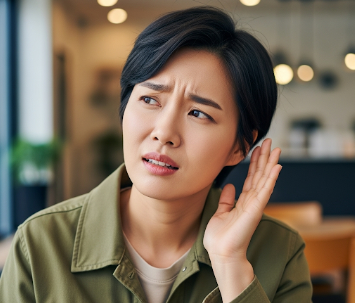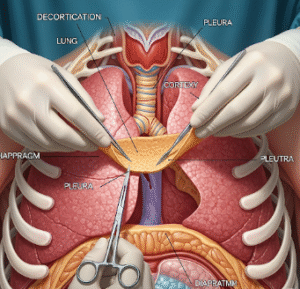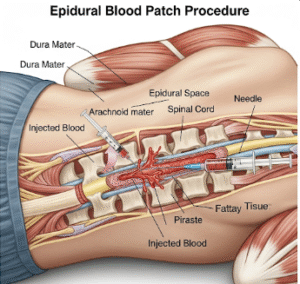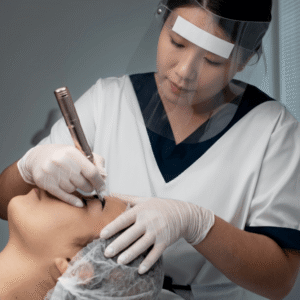Overview
Hearing loss is a condition characterized by partial or complete inability to hear sounds in one or both ears. It affects people of all ages, from newborns to the elderly, and can be sudden or gradual, temporary or permanent. Hearing is essential for communication, safety, and quality of life, so early detection and treatment are crucial.
In South Korea, audiology clinics, ENT (ear, nose, and throat) specialists, and hospitals offer comprehensive evaluation, modern hearing aids, surgical interventions, and rehabilitation programs to manage hearing loss effectively.
Key Facts
🟢 ➤ Hearing loss can be mild, moderate, severe, or profound depending on the degree of impairment.
🟢 ➤ It may affect one ear (unilateral) or both ears (bilateral).
🟢 ➤ Causes include aging, noise exposure, infections, genetics, trauma, or certain medications.
🟢 ➤ Symptoms often include difficulty understanding speech, needing higher volume for devices, and ringing in the ears (tinnitus).
🟢 ➤ Diagnosis involves audiometry, tympanometry, and sometimes imaging to assess the inner ear and auditory nerve.
🟢 ➤ Treatment ranges from hearing aids and cochlear implants to medical or surgical interventions depending on cause.
What is Hearing Loss?
Hearing loss refers to a reduction in the ability to perceive sounds, which can be classified based on location of the problem:
➤ Conductive hearing loss: Occurs when sound cannot efficiently travel through the outer or middle ear due to earwax buildup, infections, fluid, or structural abnormalities.
➤ Sensorineural hearing loss: Results from damage to the inner ear (cochlea) or auditory nerve, often due to aging (presbycusis), noise exposure, or genetic factors.
➤ Mixed hearing loss: A combination of conductive and sensorineural causes.
➤ Sudden hearing loss: Rapid onset within hours or days, often requiring urgent evaluation.
Symptoms Related to Hearing Loss
Symptoms may vary depending on severity, type, and onset:
🟢 ➤ Difficulty understanding speech, especially in noisy environments.
🟢 ➤ Frequently asking others to repeat themselves.
🟢 ➤ Turning up the volume on televisions, radios, or mobile devices.
🟢 ➤ Ringing, buzzing, or hissing in the ears (tinnitus).
🟢 ➤ Feeling of fullness, pressure, or discomfort in the ear.
🟢 ➤ Speech or language delays in children with undetected hearing loss.
🟢 ➤ Balance issues in some cases due to inner ear involvement.
Causes / Possible Causes
Hearing loss can result from various factors affecting the outer, middle, or inner ear:
Aging and Degeneration
➤ Presbycusis: gradual loss of hearing due to age-related cochlear degeneration.
Noise Exposure
➤ Long-term exposure to loud environments or sudden loud noises damaging hair cells in the inner ear.
Infections and Medical Conditions
➤ Chronic ear infections, otitis media, or meningitis.
➤ Otosclerosis: abnormal bone growth in the middle ear.
➤ Autoimmune inner ear disease or Meniere’s disease.
Trauma and Obstruction
➤ Head injury, skull fractures, or sudden changes in ear pressure.
➤ Earwax impaction blocking the ear canal.
Genetic and Congenital Factors
➤ Inherited hearing loss present at birth or developing later in life.
➤ Syndromes affecting ear structure or auditory nerve function.
Medications and Toxins
➤ Ototoxic drugs such as certain antibiotics, chemotherapy agents, or high-dose aspirin.
When Should I See a Doctor?
Medical consultation is important if:
🟢 ➤ Hearing loss is sudden or rapidly worsening.
🟢 ➤ Accompanied by dizziness, vertigo, or balance problems.
🟢 ➤ Associated with severe pain, discharge, or bleeding from the ear.
🟢 ➤ Tinnitus, fullness, or persistent ringing affects daily life.
🟢 ➤ Children show delayed speech, poor response to sound, or learning difficulties.
Early evaluation ensures timely intervention, preservation of remaining hearing, and prevention of further complications.
Care and Treatment
Management depends on type, severity, and underlying cause:
Lifestyle and Preventive Measures
➤ Avoid prolonged exposure to loud noises; use ear protection.
➤ Manage chronic ear infections promptly.
➤ Maintain ear hygiene, but avoid cotton swabs deep in the ear canal.
Medical Treatments
➤ Antibiotics or antivirals for infections.
➤ Steroids for sudden sensorineural hearing loss.
➤ Removal of earwax or treatment of middle ear fluid.
Hearing Aids and Assistive Devices
➤ Hearing aids amplify sound and improve speech perception.
➤ Bone-anchored hearing devices for specific types of conductive hearing loss.
➤ Cochlear implants for severe or profound sensorineural hearing loss.
Surgical Interventions
➤ Tympanoplasty or stapedectomy to repair middle ear structures.
➤ Cochlear implantation for severe inner ear damage.
Advanced Care in Korea
➤ South Korea offers state-of-the-art audiology clinics, modern hearing aids, cochlear implants, and ENT surgical expertise.
➤ Multidisciplinary teams provide evaluation, fitting, rehabilitation, and long-term monitoring.
➤ Patient education includes hearing protection, communication strategies, and early intervention for children.
Highlights (Clean Green Arrow Version)
🟢 ➤ Hearing loss is partial or complete inability to hear, affecting one or both ears.
🟢 ➤ Symptoms: difficulty understanding speech, tinnitus, turning up device volume, ear fullness, and balance issues.
🟢 ➤ Causes: aging, noise exposure, infections, trauma, genetic factors, medications, or congenital defects.
🟢 ➤ Seek medical care for sudden hearing loss, tinnitus with dizziness, pain, or delayed speech in children.
🟢 ➤ Treatments include hearing aids, cochlear implants, medical therapy for infections, and surgical interventions.
🟢 ➤ South Korea provides advanced ENT care, modern hearing technology, surgical expertise, and rehabilitation programs for hearing loss.













